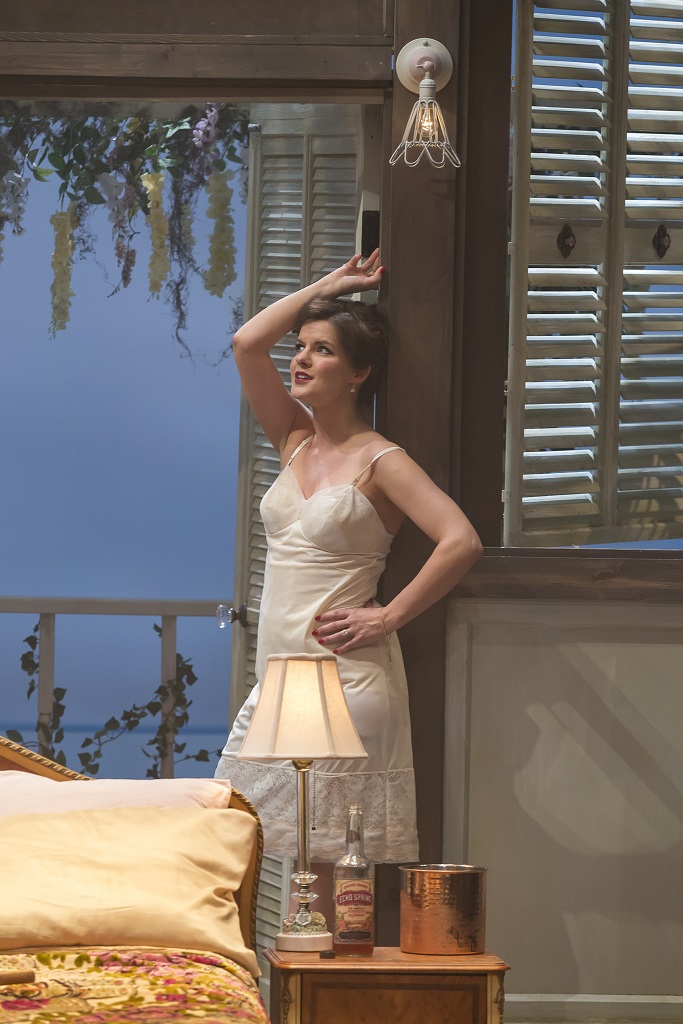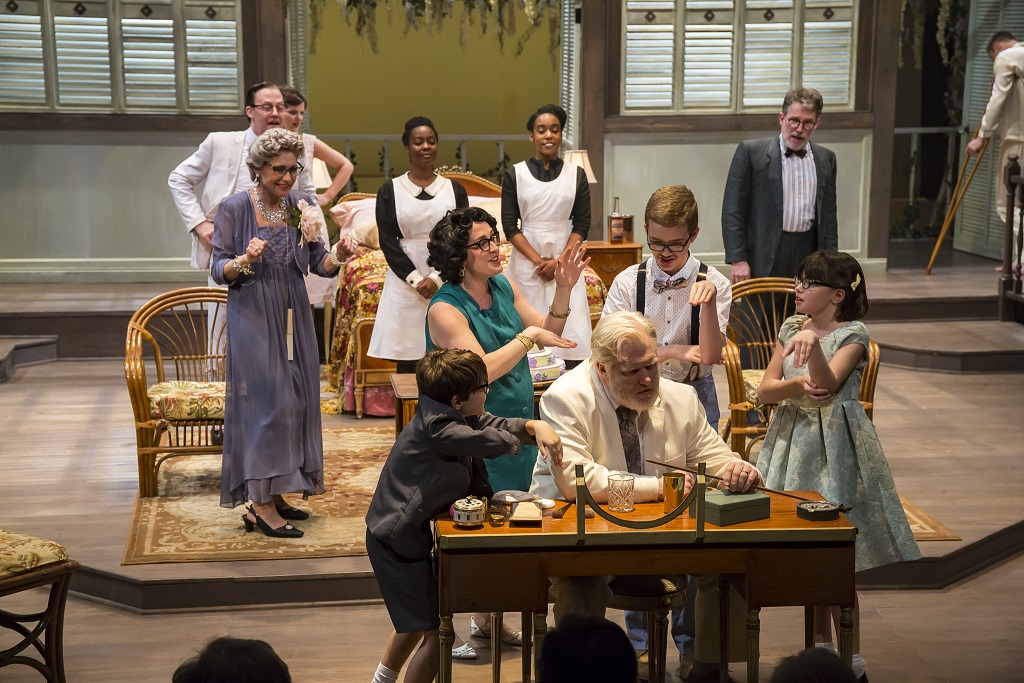“Communication is awful hard between people.” Here lies the crux of Tennessee Williams’s Pulitzer Prize-winning masterpiece, “Cat on a Hot Tin Roof,” which opened this past weekend at the Cincinnati Shakespeare Company in one of the strongest productions I’ve ever seen on a Cincinnati stage. “Tin Roof” takes place in a single room over the course of a single hot, humid Mississippi night, and CSC’s ensemble masterfully translates it into claustrophobic, suffocating, compelling, visceral theater.
“Tin Roof” unfolds around the 65th birthday of the man we only get to know as Big Daddy, the owner of the largest plantation in the Mississippi Delta, worth $10 million in his own estimation. Big Daddy has been in failing health, and members of his family are starting to wonder about life after he’s gone. For much of the first act and a half, his son, Brick (Grant Niezgodski in his third season with the ensemble), is a poisonous, looming, but quiet presence. Brick is a former football star who recently walked away from his job as a broadcaster in the wake of close friend Skipper’s death and an escalating alcohol problem. From the first seconds of the play, he’s perpetually either emptying or filling a glass of Echo Springs bourbon, trying to get to “the click I get in my head when I’ve had enough of this stuff to make me peaceful.”

Brick’s wife Maggie “the Cat” (Maggie Lou Rader at her breathtaking best) carries the first act, desperately trying to break through her sullen husband’s defenses. Their sex life has suffered in aftermath of Skipper’s death, and Brick even encourages her to take a lover. But Maggie is tenacious (“I’d rather stay on this hot tin roof”); the rest of the family regularly remarks on their childless state, and with questions of inheritance looming, there is a palpable sense of urgency. “I’m not living with you,” she cries at one point. “We occupy the same cage.”
The second act plays out largely between Brick and his father, portrayed expertly by ensemble member Jim Hopkins. Big Daddy has the world and has nothing — he has grown tired of his wife, his tedious son Gooper and meddlesome (and fertile) daughter-in-law Mae, but still feels a tight bond to Brick despite how distant they’ve grown. Personal and family secrets are dragged out into the light as Big Daddy hounds Brick about his alcoholism and lack of offspring. “Mendacity is a system we live in,” muses Brick. “Liquor is one way out, and death is the other.” This theme of falsehood and subterfuge, both within oneself and between individuals, recurs throughout the play, driving Brick and Big Daddy’s dissatisfaction and angst.

Across the third act, all hell (familial and meteorological) breaks loose. Ensemble mainstays Amy Warner (Big Mama), Kelly Mengelkoch (Mae), Justin McCombs (Gooper), Paul Riopelle (Reverend Tooker) and Nicholas Rose (sweating and anxious as Doctor Baugh, bearer of bad news) round out the scene with tremendous supporting roles. Like so much great theater, “Cat on a Hot Tin Roof” addresses a huge, relatable swath of the human experience: death, birth, sexuality, identity, class, loneliness, and disconnect. But there are few scripts that juggle them so delicately, handle them with such grace, humor, and carefully crafted ambiguity. And there are few ensembles in the Midwest better suited to bring this script to life than Cincinnati Shakespeare Company. “Cat on a Hot Tin Roof” is a triumph.
“Cat on a Hot Tin Roof” runs through April 28 at Cincinnati Shakespeare Company’s Otto M. Budig Theater.
Nat Tracey-Miller is a Cincinnati-based high school librarian, musician, cartophile, and lifelong music fan whose love spans from Bowie to Beethoven to Bon Iver to Brubeck and hits every point in between. His writing has appeared in CincyMusic, Columbus Calling, Tome to the Weather Machine, Mixtape Methodology, and more. He records as The Birds of America, and is currently completing his first EP.